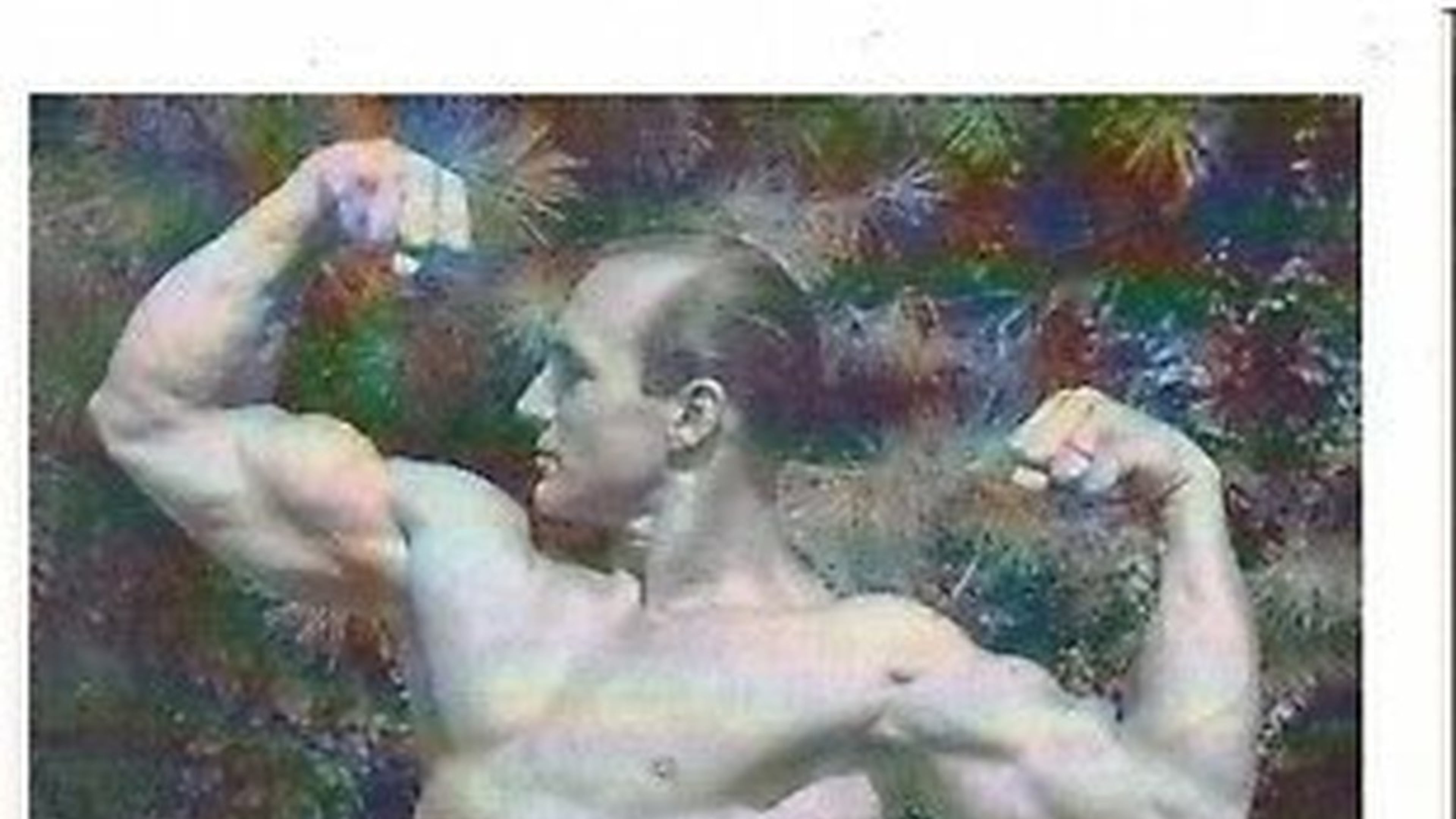Harry Johnson, 96, Atlanta’s two-time Mr. America

Two-time Mr. America and Atlanta native Harry Lionel Johnson Jr. was still showing off his muscles, following a diet he devised as a teen, and promoting his mission of health and fitness at age 96.
In a show-stopping career spanning decades, he drew crowds by inviting grown men to jump onto his stomach from atop a 10-foot ladder, and flexing his muscles to the tune of “Sweet Georgia Brown.” The legendary actress Mae West chose him to appear in her stage show. He was on the covers of many magazines, as well as the cover of Led Zeppelin’s Physical Graffiti album.
Johnson died April 30 at North Georgia Assisted Living in Dawsonville, Ga., his home for the last year. His cause of death was respiratory failure, not considered coronavirus-related. The family plans to hold a memorial service later.
Coupling self-discipline and flamboyance, Johnson encouraged the American public to take care of its health and to work hard to achieve goals. He appeared at thousands of local fairs and corporate events, showcasing the physique he pursued relentlessly.
He won competitions, including Best Developed Body in Atlanta, Mr. South, Mr. Atlanta, Mr. Georgia, Mr. Southern USA, and Junior Mr. America. He never took his sights off the Mr. America title, even after being told he was too old. Johnson pushed himself, believing extra effort would eventually prevail.
He entered the Mr. America contest five times before winning in 1959. At 36, he was the competition’s oldest winner, but he kept going, winning the Mr. America Over 40 title in 1966.
Perseverance defined him, his children say.
Standing 5’9” as a teenager, Johnson dreamed of playing sports. While a student at Atlanta Technical High School, part of what became Henry W. Grady High School, he began lifting weights, something thought at the time to be counterproductive for athletes. But as he grew stronger, so did his athletic abilities. He twice won the Georgia Prep Lightweight Boxing Championship and was an all-state guard on the football team.
“He was ahead of his time,” said daughter Martha Johnson Cobb.
Offered football scholarships to Notre Dame, Georgia Tech, and the University of South Carolina, Johnson chose to go to work as a dispatcher at Lockheed Corporation. Despite offers to travel abroad, perform with movie stars, and open a chain of gymnasiums, he stuck with Lockheed until retirement. He still maintained a demanding exercise routine each morning before work, which he repeated at night before heading to his second job at Hank & Jerry’s Hideaway, where he was a bouncer and harmonica player.
“He had an obsession to be the best he could be at everything,” said Patrick Johnson, who recalls holding down his father’s legs for 2,000 sit-ups, three times a week.
With eight children, Harry Johnson was also building a legacy outside the spotlight. They remember times between his workouts and competitions when he would sit on the floor and play, teach them to ride bikes, drill them on vocabulary words, and buy ice cream for all the neighborhood children.
“He would sing to us and play the harmonica. He was always singing,” Cobb said.
When times were hard for those he loved, Johnson stuck close. Michael Johnson loses composure when recalling his father’s visits with him during Michael’s short stent in prison. “He never quit on me. He never made me feel he was ashamed of me. He’d say, ‘You can do it. I know you can.’”
Harry Johnson did not quit on love either. His first wife, Joyce Leonard, left after 9 years of marriage because of an infidelity that Johnson called “the biggest mistake of my life,” in author Gene Asher’s book “Legends: Georgians Who Lived Impossible Dreams.” He then met and married Patricia Offutt. After she died, Johnson courted and remarried Leonard 37 years after their divorce.
As he grew older, he maintained his disciplines of diet and exercise, believing his habits would lead to long life. He was onto something. He lifted weights into his 80s and ate healthily until his death. His mind remained sharp, and he reported never having more than an occasional cold.
Johnson believed his fitness had a greater purpose. For every paid appearance he made promoting barbells for Sears, Roebuck and Co., or fitness programs for the YMCA, he did 10 appearances free for youth-focused organizations.
“It was never about the money for him,” Patrick Johnson said.
In Asher’s book, Johnson put it this way: “Being Mr. America meant more to me than fame. It gave me the opportunity to help and inspire others. I wouldn’t trade that for a million dollars.”
Johnson was preceded in death by wives Joyce Leonard Johnson and Patricia Offutt Johnson, and daughter Linda Johnson Howell. Survivors include daughters Martha Johnson Cobb of Conroe, Texas, Teresa Nash of Pasadena, Texas, and Bobbie Johnson Mosgovoy of Acworth, Ga.; and sons Patrick Johnson of Tyrone, Ga., Michael Johnson of Auburn, Ga., Anthony Allison of Fayetteville, Ga., and Robert McPherson of Kelseyville, Ca.
Memorials may be made to Patriot Paws Service Dogs, 254 Ranch Trail, Rockwall, Texas, 75032.

